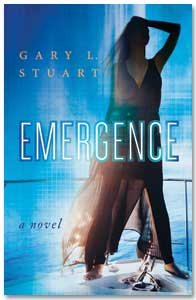Money is any item or verifiable record generally accepted as payment for goods and services and repayment of debts, such as taxes. That description comes from the IRS, which is not known for lovely writing. One of the world’s best writers, William Somerset Maugham, said, “Money is like a sixth sense – and you can’t make use of the other five without it.” Bob Hope joked about it when he said, “A bank is a place that will lend you money if you can prove that you don’t need it.” Elizabeth Taylor brought it home when she said, ““Money is the best deodorant.”
Money makes people anxious—perhaps even more so with writers. The relationship between commerce and writing is commonly sketched out in caricatures: the starving artist, the hapless student, and the privileged few who “make it.” More often, it’s not addressed.[1] Are there ethical norms for writers when writing “about” money? Should we know ethical boundaries and crevices when we talk about money?
There is scant history about the ethics of writing about money. Manjula Martin wrote a book of essays and interviews with writers on the topic of money; “Writers, Money, and the Art of Making a Living.”[2] It engages readers, as writers, on truth, class and capitalism. It examines a literary world, debating whether writing and commerce begs us to take sides. Should we be paid for everything we do or just pay our dues and count ourselves lucky to be published?
Transparency is the ethical imperative on this topic. There is an intersection of writing, money, and class, but it’s often blurred, buried, or ignored. Martin approached transparency cautiously. “Transparency is a really scary thing for a lot of people in any profession, and I think there are good reasons for that. But people, who are excited to talk about the topic, even if they’re nervous, inherently understand … that it takes transparency to change stuff. It’s the old saw of “knowledge is power,” and I think that extends to writers and money.”[3]
Besides transparency, there are ethical barriers to consider. People who come from low-income backgrounds, or maybe less traditional educational backgrounds, or who have had to deal with other types of prejudices in their life rarely write about their experience. Writers should know this reality and confront it when writing about money. An essay titled, “Dirty Money: Mere Exposure to Money Motivates to Think Business, Cheat and Lie,” calls these barriers out. The study empirically tests the link between mere exposure to money and unethical outcomes. The thesis is because money is a central pursuit of business organizations immorality in organizations can have devastating effects.[4]
A clear ethical issue when writing about money is “importance.” Writers have little to worry about when writing about unimportant issues, but money is vastly important. Money gives writers and readers freedom to carve out individual paths. Its presence means fewer constraints on life and lifestyle choices. Money is important not only to those that have it, but also their families. With it you can provide the best in housing, education, healthcare, and that first pivotal start in life. Without it, you’re broke—financially, personally, professionally, and without a shred of pity.
When thought of ethically, morally, and perhaps spiritually, money takes on a different level of impact and importance. While expanding our financial horizon, money can narrow the view by giving us time to appreciate life’s smaller but often more important things. You can’t buy the spirit of innocence. It is of little aid in developing personal gifts and talents. For some, money takes away the courage and discipline to do the “right” thing.
Money can be used or hoarded. It can give us the power to make a difference in the lives of others. For some it makes them refuse to help others out of ignorance, bigotry, or racism. Some well off people nurture less fortunate souls and some rich people never even try to do so. You can’t buy love, only companionship. You can give freely and still have enough left over. In worst-case scenarios, it leads to arrogance, jadedness, and selfishness. It can make you happy, even giddy, or it can sour everything.
The complexity of money is something writers must understand when writing about it. Complexity paints different pictures for everyone. High financial status motivates and stresses simultaneously. Motivation earns money and too much stress costs money. Preoccupation with it dims the chances of sustaining it.
While it’s not a genre, like westerns, romance, or true crime, writing about money is done by thousands of good writers. You can see it monthly or weekly in publications like Money, Smart Money, Kiplinger’s Personal Finance and Worth. Scores of other mainstream magazines—from men and women’s magazines to parenting titles. Online financial articles as a regular part of the digital world, and newspaper print media always includes the world of finance.
That huge influence comes with somewhat vague ethical guidance. For example, the bible has something to say about money. In the book of James, Ch. 5, Verses 1 to 6, the relationship between having money and the morality of it was front and center. “Now listen, you rich people, weep and wail because of the misery that is coming on you. Your wealth has rotted, and moths have eaten your clothes. Your gold and silver are corroded. Their corrosion will testify against you and eat your flesh like fire. You have hoarded wealth in the last days. Look! The wages you failed to pay the workers who mowed your fields are crying out against you. The cries of the harvesters have reached the ears of the Lord Almighty. You have lived on earth in luxury and self-indulgence. You have fattened yourselves in the day of slaughter. You have condemned and murdered the innocent one, who was not opposing you.”
Fortunately, it rarely gets that bad. The era of robber barons is defined by the term. “Robber baron” is a derogatory term of social criticism originally applied to wealthy and powerful 19th-century American businessmen. Think John Jacob Astor, Henry Ford, Andrew Carnegie, Cornelius Vanderbilt, and John D. Rockefeller. They all made massive fortunes by implementing ruthless and unethical business practices. And they were all generous philanthropists who did good things for this country.
The most important ethical norm is to remember whether you’re writing about money, or writing for it. If you’re writing about it, be transparent, honest, and cautious about advice. If you’re writing for it, be careful. Easy come, easy go, as the people who write your pay checks say.
[1] https://www.theatlantic.com/entertainment/archive/2017/01/why-more-writers-should-talk-about-money/512699/
[2] https://www.amazon.com/Scratch-Writers-Money-Making-Living/dp/1501134574
[3] https://www.theatlantic.com/entertainment/archive/2017/01/why-more-writers-should-talk-about-money/512699/
[4] https://ethics.harvard.edu/blog/dirty-money

I am an author and a part-time lawyer with a focus on ethics and professional discipline. I teach creative writing and ethics to law students at Arizona State University. Read my bio.
If you have an important story you want told, you can commission me to write it for you. Learn how.






 I am an author and a part-time lawyer with a focus on ethics and professional discipline. I teach creative writing and ethics to law students at Arizona State University.
I am an author and a part-time lawyer with a focus on ethics and professional discipline. I teach creative writing and ethics to law students at Arizona State University.  My latest novel is Emergence, the sequel to Let’s Disappear.
My latest novel is Emergence, the sequel to Let’s Disappear.  If you have an important story you want told, you can commission me to write it for you.
If you have an important story you want told, you can commission me to write it for you.